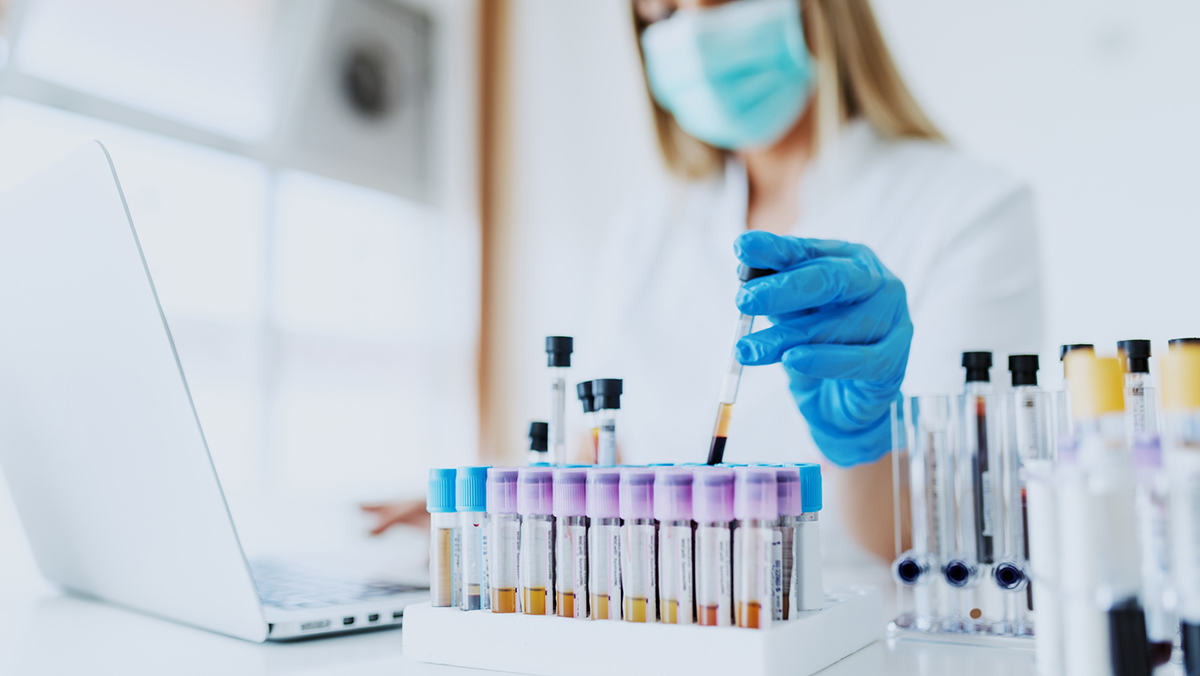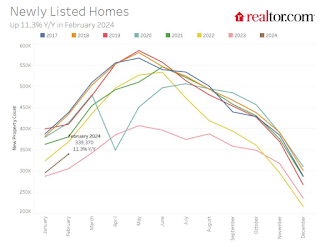The future of AI drug discovery & development in immunology and GPCR research
Alphabet subsidiary and precision health company Verily recently announced a breakthrough in its AI drug discovery GPCR research
The post The future of…

Alphabet subsidiary and precision health company Verily recently announced a breakthrough in its AI drug discovery GPCR research collaboration with Sosei Heptares.
A mere six months ago Verily launched the study with Sosei Heptares – a global leader in GPCR structure-based drug design – with an aim to “prioritise protein targets for therapeutic targeting in immune-mediated disease”. Now, Verily has announced that early results from its “next generation immune mapping technology” Immune Profiler platform have already identified “more effective therapeutic options against G protein-coupled receptors (GPCR) in autoimmune and other immune-mediated diseases”.
The companies hope that in the year to come those data targets will be entered for validation, hit generation, and lead selection. With approximately one third of all current FDA-approved drugs targeting GPCRs, Verily/Sosei Heptares are looking to expedite GPCR research within not only immunology, but also gastroenterology and immuno-oncology as well, and the latest data bodes well for future development of therapeutic options in these areas.
Human-first precision health
Pharmaphorum asked Charlie Kim, head of molecular science at Verily (which takes a “human-first precision approach to drug target discovery”), to expand on the details of the recent collaborative findings and what they mean for the future of the Verily/Sosei Heptares partnership, as well as where he thinks AI’s use in drug discovery and development might lead the industry.
Verily’s Immune Profiler platform is “a discovery engine consisting of proprietary immune profiling lab workflow, growing multi-omic database, and advanced analytical tools”. The purpose of collaborating with Sosei Heptares, Kim told pharmaphorum, was to streamline definition of those GPCR targets worth studying, while substantially reducing human hours spent trawling through data.
Granted, it’s an ambitious scientific undertaking, and one “aimed squarely at developing new and more effective therapeutic options for autoimmune and other immune-mediated diseases.” Essentially, the collaboration brought together both “the right expertise and the right technology”, opening up myriad possibilities for targeting GPCRs within the human genome.
Verily’s Immune Profiler can, Kim asserted, “generate more than 8 million immune measures across 24 immune cell subsets”. What this means is that it lays pretty firm foundations for identifying new drug targets and, coupled with Sosei Heptares’ expertise, researchers have been able to reveal “a number of priority targets with known links to autoimmune diseases that were not high on anyone’s radar until now”.
Next, they need experiential evidence that will support progressing these revealed prioritised targets into the discovery of lead molecules.
Technological breakthroughs in molecular biology
Kim was inspired by the “host of technological breakthroughs in molecular biology in the late 90s”, when he was beginning his PhD at Stanford University. It was a time when “the potential for systematic understanding of complex biology was palpable”, a fascinating terrain wherein the “first bacterial genomes were being sequenced”, when microarray technology was in the early stages of being invented, and ‘genomics’ and ‘big data’ certainly weren’t on the tips of people’s tongues.
Kim recognised then, he said, that better tools for medicine needed to be developed, and that they still do. Citing the transformative therapies available for targets such as tumour necrosis factor (TNF), the pro-inflammatory cytokine interleukin-23 (IL-23), and programmed cell death protein 1 (PD-1) – he explained that “these drugs only achieve the best outcomes in a minority of patients with autoimmunity or cancer”. What, then, is the solution?
Well, Kim believes that “by leveraging the power of genetics and functional genomics, coupled with a ‘human-first’ mindset, innovative analytics, and scalable compute power” there is “the ability to take a fundamentally different approach to drug development”. It also bodes well for improving clinical trial success rates. Indeed, Verily’s Immune Profiler prioritises targets with “multiple lines of evidence” by specifically using “multi-omic integration of evolutionary selected genetic signals and their associated functional impacts to construct models of human immunology”. The company also hopes the platform will be able “to identify better biomarkers and diagnostic tools”.
Efficiency and cost-effectiveness are key drivers in these recent developments in AI drug discovery and development, given that R&D for a new drug can take up to 18 years. The overarching desire to reduce in some way the “translational valley of death” of failed clinical trials is palpable. But mere volition does not enact results. Back in January 2020, Exscientia and Sumitomo Dainippon partnered on the AI-created drug molecule DSP-1181 for obsessive compulsive disorder (OCD): the development had taken their AI only 12 months to go to trial. However, by July 2022 it was revealed that DSP-1181 didn’t even pass the phase 1 study and, furthermore, had exhibited “insufficient novelty” (bearing considerable similarity to haloperidol, the antipsychotic drug FDA-approved in 1967).
AI drug discovery in immunology today, and tomorrow
AI relies on data. Speed and cost-effectiveness are one thing, but without good data to act upon, results are meaningless. Noting that AI has been used successfully in diagnostic breakthroughs in oncology thus far, Kim reminded us that when it comes to autoimmune diseases, such “predictive and accurate diagnostic tests […] are still in their infancy”.
As Kim makes very clear, “[i]mmune-mediated diseases are highly complex and, oftentimes, therapies that work for one patient may not be effective for another”. What the Immune Profiler platform does is “broaden the ability to identify potential places where new therapies could be found”. It is the horizon looker, seeing far more – and, at that, far more expediently – than the human researcher alone ever could.
A notable issue with clinical trials is the homogeneity of the patient database. Whilst many are rightly calling for a diversification and equitisation of clinical trial participation, it doesn’t yet change the fact that the pharma industry uses clinical research organisation (CRO)-provided information, which itself can only draw from the patient-provided data available – patient data which isn’t always particularly diverse.
Precision health, then, seeks to create “the greatest number of options possible”, as well as “make sure every patient has the most targeted treatment for their condition, physiology, and more”. The artificial intelligence in Verily/Sosei Heptares’ case uses advanced data analytics to search for molecules to test in the first place. Undertaking that needle-in-a-haystack task, the AI looks for something, anything – until it finds it. As Kim admits, “[n]ot all of them will bear fruit – but some, even maybe many, will – and that’s why it’s so critical for us to be here right now”.
Verily and Sosei Heptares hope their collaboration will eventually help those people currently living with immune-mediated diseases who are dissatisfied with their current treatment, or unable to undergo the currently available therapies for their condition, by “unlocking novel therapeutic options”. It is not a method that will yield tangible results tomorrow, but with further investigation and even molecule generation projected within the next year, as Kim, said: “In pharmaceutical R&D, that is certainly moving at a very fast clip.”
About the interviewee
 Dr. Charlie Kim earned his PhD from Microbiology and Immunology at Stanford University and pioneered the application of genomic and bioinformatic approaches to the study of infectious disease. He joined the faculty of the UCSF Department of Medicine in 2011, where he expanded his focus to the application of immunogenomic approaches to translational research. In 2015, he joined Verily to further these goals in the powerful compute environment of the Google ecosystem. In his role as Head of Molecular Science, he leads teams responsible for innovating molecular platforms and applying them in translational research aimed at improving patient outcomes. He is the director of PRESCO, a multi-site observational severe COVID-19 outcomes study, and strives to bring powerful technologies to translational research with the goal of accelerating the development of therapeutics, biomarkers, and diagnostics that can improve patient outcomes through Precision Health.
Dr. Charlie Kim earned his PhD from Microbiology and Immunology at Stanford University and pioneered the application of genomic and bioinformatic approaches to the study of infectious disease. He joined the faculty of the UCSF Department of Medicine in 2011, where he expanded his focus to the application of immunogenomic approaches to translational research. In 2015, he joined Verily to further these goals in the powerful compute environment of the Google ecosystem. In his role as Head of Molecular Science, he leads teams responsible for innovating molecular platforms and applying them in translational research aimed at improving patient outcomes. He is the director of PRESCO, a multi-site observational severe COVID-19 outcomes study, and strives to bring powerful technologies to translational research with the goal of accelerating the development of therapeutics, biomarkers, and diagnostics that can improve patient outcomes through Precision Health.
If you liked this story, check out the related video below.
The post The future of AI drug discovery & development in immunology and GPCR research appeared first on .
treatment fda clinical trials genetic covid-19Uncategorized
Part 1: Current State of the Housing Market; Overview for mid-March 2024
Today, in the Calculated Risk Real Estate Newsletter: Part 1: Current State of the Housing Market; Overview for mid-March 2024
A brief excerpt: This 2-part overview for mid-March provides a snapshot of the current housing market.
I always like to star…

A brief excerpt:
This 2-part overview for mid-March provides a snapshot of the current housing market.There is much more in the article.
I always like to start with inventory, since inventory usually tells the tale!
...
Here is a graph of new listing from Realtor.com’s February 2024 Monthly Housing Market Trends Report showing new listings were up 11.3% year-over-year in February. This is still well below pre-pandemic levels. From Realtor.com:
However, providing a boost to overall inventory, sellers turned out in higher numbers this February as newly listed homes were 11.3% above last year’s levels. This marked the fourth month of increasing listing activity after a 17-month streak of decline.Note the seasonality for new listings. December and January are seasonally the weakest months of the year for new listings, followed by February and November. New listings will be up year-over-year in 2024, but we will have to wait for the March and April data to see how close new listings are to normal levels.
There are always people that need to sell due to the so-called 3 D’s: Death, Divorce, and Disease. Also, in certain times, some homeowners will need to sell due to unemployment or excessive debt (neither is much of an issue right now).
And there are homeowners who want to sell for a number of reasons: upsizing (more babies), downsizing, moving for a new job, or moving to a nicer home or location (move-up buyers). It is some of the “want to sell” group that has been locked in with the golden handcuffs over the last couple of years, since it is financially difficult to move when your current mortgage rate is around 3%, and your new mortgage rate will be in the 6 1/2% to 7% range.
But time is a factor for this “want to sell” group, and eventually some of them will take the plunge. That is probably why we are seeing more new listings now.
Government
RFK Jr. Reveals Vice President Contenders
RFK Jr. Reveals Vice President Contenders
Authored by Jeff Louderback via The Epoch Times,
New York Jets quarterback Aaron Rodgers and former…

Authored by Jeff Louderback via The Epoch Times,
New York Jets quarterback Aaron Rodgers and former Minnesota governor and professional wrestler Jesse Ventura are among the potential running mates for independent presidential candidate Robert F. Kennedy Jr., the New York Times reported on March 12.
Citing “two people familiar with the discussions,” the New York Times wrote that Mr. Kennedy “recently approached” Mr. Rodgers and Mr. Ventura about the vice president’s role, “and both have welcomed the overtures.”
Mr. Kennedy has talked to Mr. Rodgers “pretty continuously” over the last month, according to the story. The candidate has kept in touch with Mr. Ventura since the former governor introduced him at a February voter rally in Tucson, Arizona.
Stefanie Spear, who is the campaign press secretary, told The Epoch Times on March 12 that “Mr. Kennedy did share with the New York Times that he’s considering Aaron Rodgers and Jesse Ventura as running mates along with others on a short list.”
Ms. Spear added that Mr. Kennedy will name his running mate in the upcoming weeks.
Former Democrat presidential candidates Andrew Yang and Tulsi Gabbard declined the opportunity to join Mr. Kennedy’s ticket, according to the New York Times.
Mr. Kennedy has also reportedly talked to Sen. Rand Paul (R-Ky.) about becoming his running mate.
Last week, Mr. Kennedy endorsed Mr. Paul to replace Sen. Mitch McConnell (R-Ky.) as the Senate Minority Leader after Mr. McConnell announced he would step down from the post at the end of the year.
CNN reported early on March 13 that Mr. Kennedy’s shortlist also includes motivational speaker Tony Robbins, Discovery Channel Host Mike Rowe, and civil rights attorney Tricia Lindsay. The Washington Post included the aforementioned names plus former Republican Massachusetts senator and U.S. Ambassador to New Zealand and Samoa, Scott Brown.
In April 2023, Mr. Kennedy entered the Democrat presidential primary to challenge President Joe Biden for the party’s 2024 nomination. Claiming that the Democrat National Committee was “rigging the primary” to stop candidates from opposing President Biden, Mr. Kennedy said last October that he would run as an independent.
This year, Mr. Kennedy’s campaign has shifted its focus to ballot access. He currently has qualified for the ballot as an independent in New Hampshire, Utah, and Nevada.
Mr. Kennedy also qualified for the ballot in Hawaii under the “We the People” party.
In January, Mr. Kennedy’s campaign said it had filed paperwork in six states to create a political party. The move was made to get his name on the ballots with fewer voter signatures than those states require for candidates not affiliated with a party.
The “We the People” party was established in five states: California, Delaware, Hawaii, Mississippi, and North Carolina. The “Texas Independent Party” was also formed.
A statement by Mr. Kennedy’s campaign reported that filing for political party status in the six states reduced the number of signatures required for him to gain ballot access by about 330,000.
Ballot access guidelines have created a sense of urgency to name a running mate. More than 20 states require independent and third-party candidates to have a vice presidential pick before collecting and submitting signatures.
Like Mr. Kennedy, Mr. Ventura is an outspoken critic of COVID-19 vaccine mandates and safety.
Mr. Ventura, 72, gained acclaim in the 1970s and 1980s as a professional wrestler known as Jesse “the Body” Ventura. He appeared in movies and television shows before entering the Minnesota gubernatorial race as a Reform Party headliner. He was a longshot candidate but prevailed and served one term.
Former pro wrestler Jesse Ventura in Washington on Oct. 4, 2013. (Brendan Smialowski/AFP via Getty Images)
In an interview on a YouTube podcast last December, Mr. Ventura was asked if he would accept an offer to run on Mr. Kennedy’s ticket.
“I would give it serious consideration. I won’t tell you yes or no. It will depend on my personal life. Would I want to commit myself at 72 for one year of hell (campaigning) and then four years (in office)?” Mr. Ventura said with a grin.
Mr. Rodgers, who spent his entire career as a quarterback for the Green Bay Packers before joining the New York Jets last season, remains under contract with the Jets. He has not publicly commented about joining Mr. Kennedy’s ticket, but the four-time NFL MVP endorsed him earlier this year and has stumped for him on podcasts.
The 40-year-old Rodgers is still under contract with the Jets after tearing his Achilles tendon in the 2023 season opener and being sidelined the rest of the year. The Jets are owned by Woody Johnson, a prominent donor to former President Donald Trump who served as U.S. Ambassador to Britain under President Trump.
Since the COVID-19 vaccine was introduced, Mr. Rodgers has been outspoken about health issues that can result from taking the shot. He told podcaster Joe Rogan that he has lost friends and sponsorship deals because of his decision not to get vaccinated.
Quarterback Aaron Rodgers of the New York Jets talks to reporters after training camp at Atlantic Health Jets Training Center in Florham Park, N.J., on July 26, 2023. (Rich Schultz/Getty Images)
Earlier this year, Mr. Rodgers challenged Kansas City Chiefs tight end Travis Kelce and Dr. Anthony Fauci to a debate.
Mr. Rodgers referred to Mr. Kelce, who signed an endorsement deal with vaccine manufacturer Pfizer, as “Mr. Pfizer.”
Dr. Fauci served as director of the National Institute of Allergy and Infectious Diseases from 1984 to 2022 and was chief medical adviser to the president from 2021 to 2022.
When Mr. Kennedy announces his running mate, it will mark another challenge met to help gain ballot access.
“In some states, the signature gathering window is not open. New York is one of those and is one of the most difficult with ballot access requirements,” Ms. Spear told The Epoch Times.
“We need our VP pick and our electors, and we have to gather 45,000 valid signatures. That means we will collect 72,000 since we have a 60 percent buffer in every state,” she added.
The window for gathering signatures in New York opens on April 16 and closes on May 28, Ms. Spear noted.
“Mississippi, North Carolina, and Oklahoma are the next three states we will most likely check off our list,” Ms. Spear added. “We are confident that Mr. Kennedy will be on the ballot in all 50 states and the District of Columbia. We have a strategist, petitioners, attorneys, and the overall momentum of the campaign.”
Uncategorized
Pharma industry reputation remains steady at a ‘new normal’ after Covid, Harris Poll finds
The pharma industry is hanging on to reputation gains notched during the Covid-19 pandemic. Positive perception of the pharma industry is steady at 45%…

The pharma industry is hanging on to reputation gains notched during the Covid-19 pandemic. Positive perception of the pharma industry is steady at 45% of US respondents in 2023, according to the latest Harris Poll data. That’s exactly the same as the previous year.
Pharma’s highest point was in February 2021 — as Covid vaccines began to roll out — with a 62% positive US perception, and helping the industry land at an average 55% positive sentiment at the end of the year in Harris’ 2021 annual assessment of industries. The pharma industry’s reputation hit its most recent low at 32% in 2019, but it had hovered around 30% for more than a decade prior.
“Pharma has sustained a lot of the gains, now basically one and half times higher than pre-Covid,” said Harris Poll managing director Rob Jekielek. “There is a question mark around how sustained it will be, but right now it feels like a new normal.”
The Harris survey spans 11 global markets and covers 13 industries. Pharma perception is even better abroad, with an average 58% of respondents notching favorable sentiments in 2023, just a slight slip from 60% in each of the two previous years.
Pharma’s solid global reputation puts it in the middle of the pack among international industries, ranking higher than government at 37% positive, insurance at 48%, financial services at 51% and health insurance at 52%. Pharma ranks just behind automotive (62%), manufacturing (63%) and consumer products (63%), although it lags behind leading industries like tech at 75% positive in the first spot, followed by grocery at 67%.
The bright spotlight on the pharma industry during Covid vaccine and drug development boosted its reputation, but Jekielek said there’s maybe an argument to be made that pharma is continuing to develop innovative drugs outside that spotlight.
“When you look at pharma reputation during Covid, you have clear sense of a very dynamic industry working very quickly and getting therapies and products to market. If you’re looking at things happening now, you could argue that pharma still probably doesn’t get enough credit for its advances, for example, in oncology treatments,” he said.
vaccine pandemic covid-19-

 Uncategorized3 weeks ago
Uncategorized3 weeks agoAll Of The Elements Are In Place For An Economic Crisis Of Staggering Proportions
-

 International5 days ago
International5 days agoEyePoint poaches medical chief from Apellis; Sandoz CFO, longtime BioNTech exec to retire
-

 Uncategorized4 weeks ago
Uncategorized4 weeks agoCalifornia Counties Could Be Forced To Pay $300 Million To Cover COVID-Era Program
-

 Uncategorized3 weeks ago
Uncategorized3 weeks agoApparel Retailer Express Moving Toward Bankruptcy
-

 Uncategorized4 weeks ago
Uncategorized4 weeks agoIndustrial Production Decreased 0.1% in January
-

 International5 days ago
International5 days agoWalmart launches clever answer to Target’s new membership program
-

 Uncategorized4 weeks ago
Uncategorized4 weeks agoRFK Jr: The Wuhan Cover-Up & The Rise Of The Biowarfare-Industrial Complex
-

 Uncategorized3 weeks ago
Uncategorized3 weeks agoGOP Efforts To Shore Up Election Security In Swing States Face Challenges























